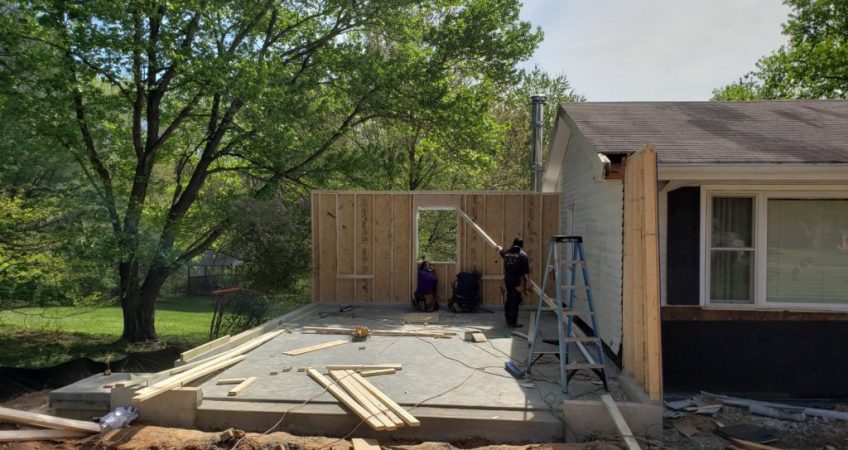If you’re considering a room addition for your home, there are a few things you should know before you begin. Room additions can be a great way to increase your living space and add value to your home, but they can also be complex and time-consuming projects. Here are some key things to remember when planning a room addition:
1. Determine Your Budget
The first step in any home renovation project is determining your budget. Room additions can be expensive, so it’s important to understand how much you can afford to spend clearly. Be sure to factor in all the costs associated with the project, including materials, labor, and permits. It’s also a good idea to add a 10-15% contingency budget to cover unexpected expenses that may arise during the project.
2. Consider Your Space
Before you begin planning your room addition, it’s important to consider your existing space. Do you have enough room on your property to accommodate an addition? Will the new addition fit in with the style and design of your home? Will the addition disrupt the flow of your existing living space? Considering these questions before you begin the design process is important to ensure your room addition is successful.
3. Choose Your Design
Once you’ve determined your budget and considered your space, it’s time to choose your room addition design. Many room additions include second-story additions, garage conversions, and sunrooms. Be sure to choose a design that will meet your needs and complement the design of your home. It’s a good idea to work with a professional designer or architect to ensure that your room addition is both functional and aesthetically pleasing.
4. Hire a Professional Contractor
Room additions can be complex projects that require specialized skills and expertise. Hiring a professional contractor with experience with room additions is important. It can ensure that the project is completed safely, efficiently, and to your satisfaction. Check references and verify that the contractor is licensed and insured. It’s also a good idea to get multiple bids from different contractors to ensure you get a fair price for the project.
5. Obtain Necessary Permits
Most room additions require permits from your local government. Be sure to obtain all necessary permits before beginning your project. Be prepared to comply with your area’s zoning regulations or building codes. Your contractor should be able to help you with the permit process and ensure that all necessary inspections are completed throughout the project.
6. Plan for the Future
When planning a room addition, it’s important to think about your future needs and current ones. Will the room addition meet your needs in the long term, or will you quickly outgrow the space? If you plan to sell your home, will the room addition add value to your property? It’s a good idea to consider these questions before beginning your project to ensure that your room addition is a wise investment.
7. Be Prepared for Disruptions
Room additions can disrupt your daily life. You may need to relocate temporarily during the project; there may be noise, dust, and other inconveniences. It’s important to communicate with your contractor and set expectations upfront to minimize disruptions as much as possible. Having a plan in place for dealing with any unexpected issues that may arise during the project is also a good idea.
8. Consider Energy Efficiency
When planning your room addition, it’s a good idea to consider energy efficiency. Adding insulation, energy-efficient windows, and efficient heating and cooling systems can reduce energy bills and make your home more comfortable. Talk to your contractor about energy-efficient options that may be available for your room addition.
9. Don’t Cut Corners
Finally, resisting the temptation to cut corners during your room addition project is important. Skimping on materials or hiring a subpar contractor may save you money in the short term. Still, it can lead to costly repairs and problems. Investing in quality materials and working with a reputable contractor to ensure your room addition is successful is better.
Planning a room addition can be challenging but rewarding. By following these tips and working with a professional contractor, you can ensure that your room addition project is a success and that you enjoy the additional space and value it adds to your home.
Maximizing Your Room Addition: Tips for Designing the Perfect Space

